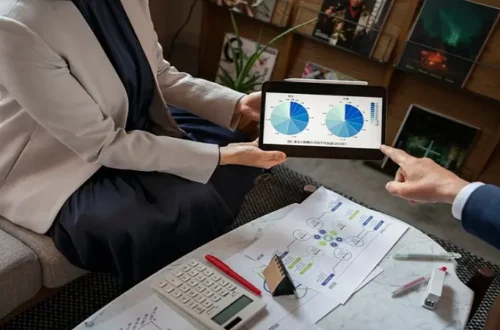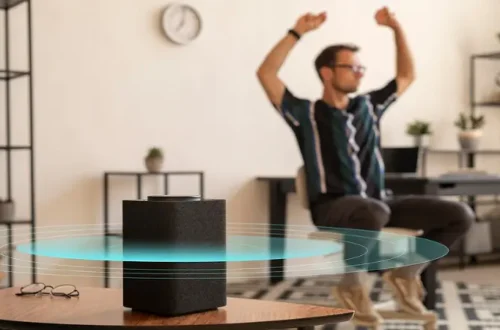In recent years, the technology industry has seen a surge in mergers and acquisitions, with companies seeking to expand their product lines, enter new markets, or acquire innovative technologies. Among these, Amazon’s acquisition of iRobot, the company behind the popular Roomba robotic vacuums, stands out as a significant move in the smart home and robotics sector. This article delves into the details of this acquisition, the motivations behind it, and its implications for both companies and the industry at large. Sources Commission Amazon 1.4b Irobot Cheereuters
Amazon’s Strategic Acquisition
Amazon, a global e-commerce giant and leader in cloud computing, has consistently sought to diversify its portfolio. From cloud services with Amazon Web Services (AWS) to streaming with Prime Video, and even smart home devices like Echo and Alexa, Amazon’s footprint spans various industries. The acquisition of iRobot for $1.4 billion is yet another step in Amazon’s strategy to bolster its smart home ecosystem. Sources Commission Amazon 1.4b Irobot Cheereuters
Why iRobot? iRobot, founded in 1990, is renowned for its Roomba vacuum cleaners, which have revolutionized home cleaning through automation. The company’s expertise in robotics and AI aligns well with Amazon’s ambitions in smart home technology. By acquiring iRobot, Amazon gains access not only to a well-established product line but also to advanced robotics technology and intellectual property.
The Deal: $1.4 Billion Valuation The $1.4 billion valuation of iRobot reflects its market position and technological advancements. For Amazon, this acquisition is not just about expanding its product offerings but also about gaining a competitive edge in the smart home market. The deal was confirmed by multiple sources, with commissions likely paid to financial advisors and legal teams who facilitated the transaction.
The Role of Regulatory Bodies
Mergers and acquisitions, especially those involving tech giants like Amazon, often come under scrutiny from regulatory bodies. In this case, the transaction required approval from antitrust regulators, who assess whether such deals could potentially harm competition in the market. The article explores the role of these commissions, the concerns raised, and how Amazon addressed them.
Antitrust Concerns Given Amazon’s extensive market presence, regulators were concerned that the acquisition could stifle competition in the smart home and robotics sectors. However, Amazon argued that the deal would benefit consumers by enhancing product integration and innovation. Sources Commission Amazon 1.4b Irobot Cheereuters
Approval and Conditions After a thorough examination, the acquisition received approval, albeit with conditions. One key requirement was that Amazon would maintain iRobot’s data privacy standards, ensuring that user data collected by Roomba devices would not be used for advertising or other purposes without explicit consent.
“Cheereuters”: The Media’s Perspective
The term “cheereuters” likely refers to Reuters, a well-known news organization, and the enthusiastic or supportive tone often taken by media when reporting on major corporate deals. In this section, we examine how the media covered the Amazon-iRobot deal and the implications of such coverage.
Media Coverage and Public Perception The media played a crucial role in shaping public perception of the acquisition. Reports highlighted the strategic fit between Amazon and iRobot, while also raising questions about data privacy and market dominance. “Cheereuters” coverage tended to emphasize the positive aspects of the deal, such as potential innovations in smart home technology. Sources Commission Amazon 1.4b Irobot Cheereuters
Balancing Objectivity and Enthusiasm While media outlets like Reuters provided balanced reporting, some commentators expressed concern over the potentially cozy relationship between big tech and the press. The term “cheereuters” could imply a level of bias or favoritism in the coverage, which is a critical point of reflection for journalistic ethics.
The Future of Smart Home Technology
With iRobot under its wing, Amazon is poised to further innovate in the smart home space. This acquisition opens up numerous possibilities, from more advanced home cleaning solutions to integrated smart home systems that communicate seamlessly with other Amazon devices. Sources Commission Amazon 1.4b Irobot Cheereuters
Potential Innovations One area of potential innovation is the integration of iRobot’s technology with Amazon’s voice assistant, Alexa. Imagine controlling your Roomba with a simple voice command or scheduling cleaning tasks through the Alexa app. Additionally, Amazon could leverage iRobot’s robotics expertise to develop new types of smart home devices, from security systems to automated lawn care.
Challenges and Opportunities, However, the acquisition also presents challenges. Amazon must navigate the complexities of integrating a new company into its ecosystem while maintaining the quality and reputation of iRobot’s products. Moreover, the company must continue to address concerns about data privacy and market competition.
Conclusion: A Strategic Move with Far-Reaching Implications
The acquisition of iRobot by Amazon for $1.4 billion is a strategic move that strengthens Amazon’s position in the smart home market. While the deal brings numerous benefits, including advanced technology and new product opportunities, it also raises important questions about market competition and data privacy. As Amazon continues to expand its influence, it must balance innovation with ethical considerations, ensuring that its growth benefits both consumers and the broader industry.
In the coming years, we can expect to see more developments in smart home technology, driven by the combined expertise of Amazon and iRobot. Whether it’s a smarter, more efficient Roomba or entirely new types of smart devices, the future looks promising for tech enthusiasts and homeowners alike. Sources Commission Amazon 1.4b Irobot Cheereuters





